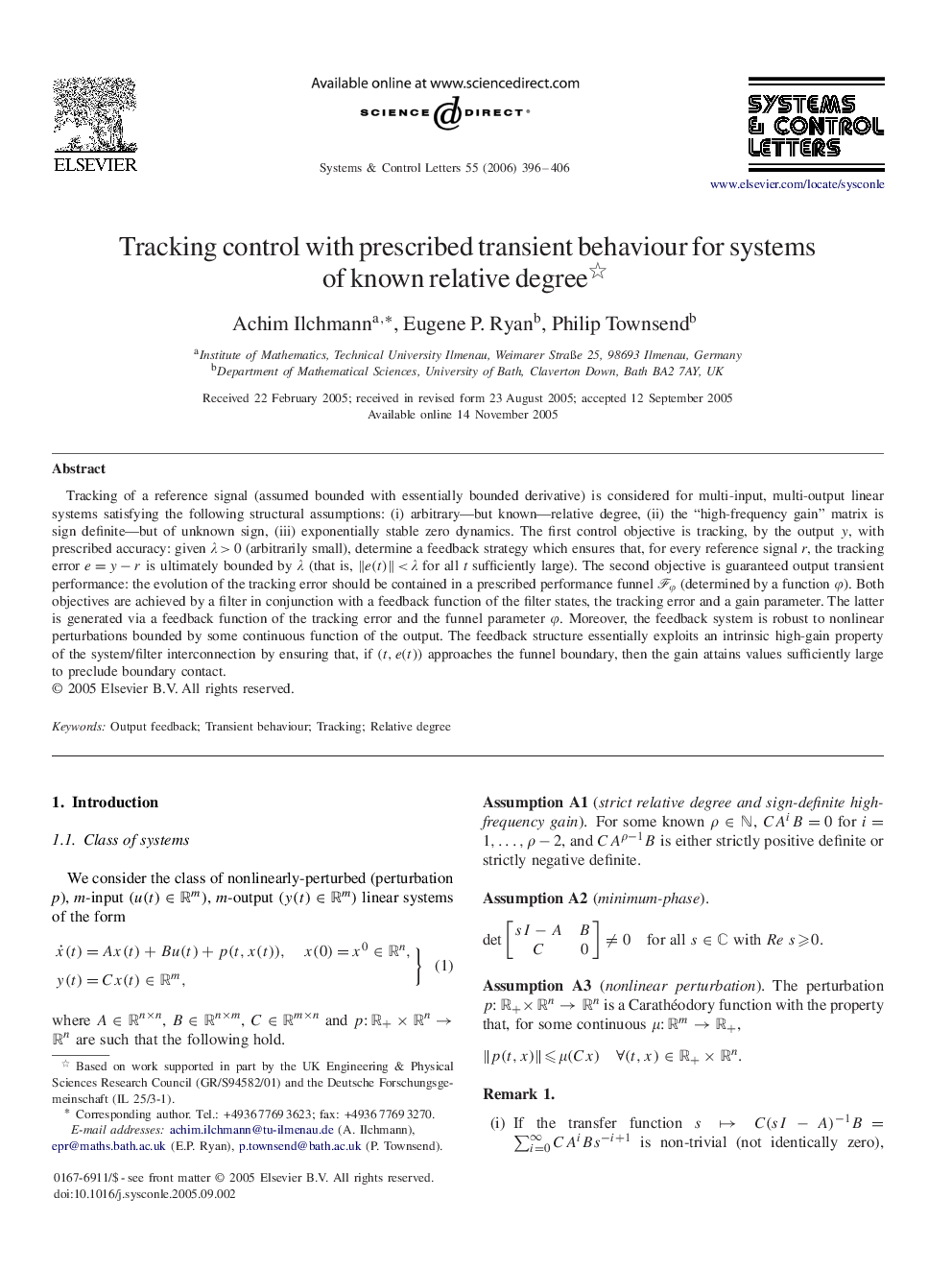| Article ID | Journal | Published Year | Pages | File Type |
|---|---|---|---|---|
| 752514 | Systems & Control Letters | 2006 | 11 Pages |
Tracking of a reference signal (assumed bounded with essentially bounded derivative) is considered for multi-input, multi-output linear systems satisfying the following structural assumptions: (i) arbitrary—but known—relative degree, (ii) the “high-frequency gain” matrix is sign definite—but of unknown sign, (iii) exponentially stable zero dynamics. The first control objective is tracking, by the output yy, with prescribed accuracy: given λ>0λ>0 (arbitrarily small), determine a feedback strategy which ensures that, for every reference signal r , the tracking error e=y-re=y-r is ultimately bounded by λλ (that is, ∥e(t)∥<λ∥e(t)∥<λ for all t sufficiently large). The second objective is guaranteed output transient performance: the evolution of the tracking error should be contained in a prescribed performance funnel FϕFϕ (determined by a function ϕϕ). Both objectives are achieved by a filter in conjunction with a feedback function of the filter states, the tracking error and a gain parameter. The latter is generated via a feedback function of the tracking error and the funnel parameter ϕϕ. Moreover, the feedback system is robust to nonlinear perturbations bounded by some continuous function of the output. The feedback structure essentially exploits an intrinsic high-gain property of the system/filter interconnection by ensuring that, if (t,e(t))(t,e(t)) approaches the funnel boundary, then the gain attains values sufficiently large to preclude boundary contact.
